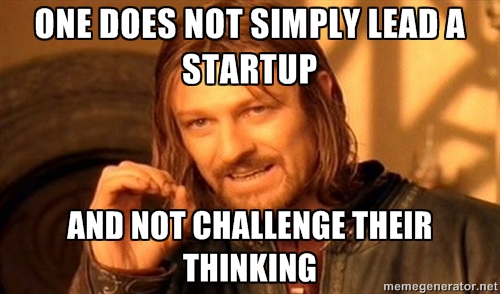Newsflash: employees have biases, will argue their ideas because of those biases, and CEOs must remain impartial.
That’s what a new report tabled by Ernst & Young (EY) and the Royal Bank of Canada (RBC) suggests. It said even leaders with the best intentions may be unconsciously stifling diversity in their organizations.
The report explains that while savvy business leaders know that having diverse teams is a competitive advantage in today’s global environment, research on hidden bias reveals that unconscious preferences are common. These can include creating barriers, limiting creativity and the quality of relationships we have with those around us. However, the report said by learning to recognize and manage bias, leaders can work towards mitigating its impact and maximizing the potential of our organizations.
“We believe it’s important for us to explore this complex and sometimes sensitive topic,” said RBC’s Zabeen Hirji. “While many companies have made great strides in advancing diversity and inclusion in the workplace, there has been a lag in progress in some areas, such as the advancement of women and minorities in leadership roles and boardrooms. Unconscious biases should be considered as a possible underlying reason for this.”
These biases can range from obvious physical characteristics like gender, race, ethnicity and age, to more subtle ones like personality and experiences. But we can also bias in a positive way, like favouring our family, community, and people with whom we share characteristics or experiences.
The report, called “Outsmarting our brains: Overcoming hidden biases to harness diversity’s true potential,” notes problems arise in the workplace when we let our biases affect or shape the decisions we make in and on behalf of our organizations. Whether it’s an unconscious aversion to one group or preference for another, hidden biases can affect everything from hiring and promotion, to team and project assignments, to openness to new sources of ideas and innovative solutions.
“As a leader, it’s important to turn around and see who’s following you,” said EY’s “Chief Inclusiveness Officer” Fiona Macfarlane. “Is it your intent to have the people following you all look and behave just like you? That is simply not representative of our highly diverse society.”
But the research also shows that leaders who identify and confront their hidden biases are better at managing multiple viewpoints and perspectives, improving connections with clients and delivering bottom-line results. It might not be easy, but it’s important for leaders to raise their awareness, challenge their thinking and develop truly inclusive leadership behaviours in order to set the course for others and drive change.

